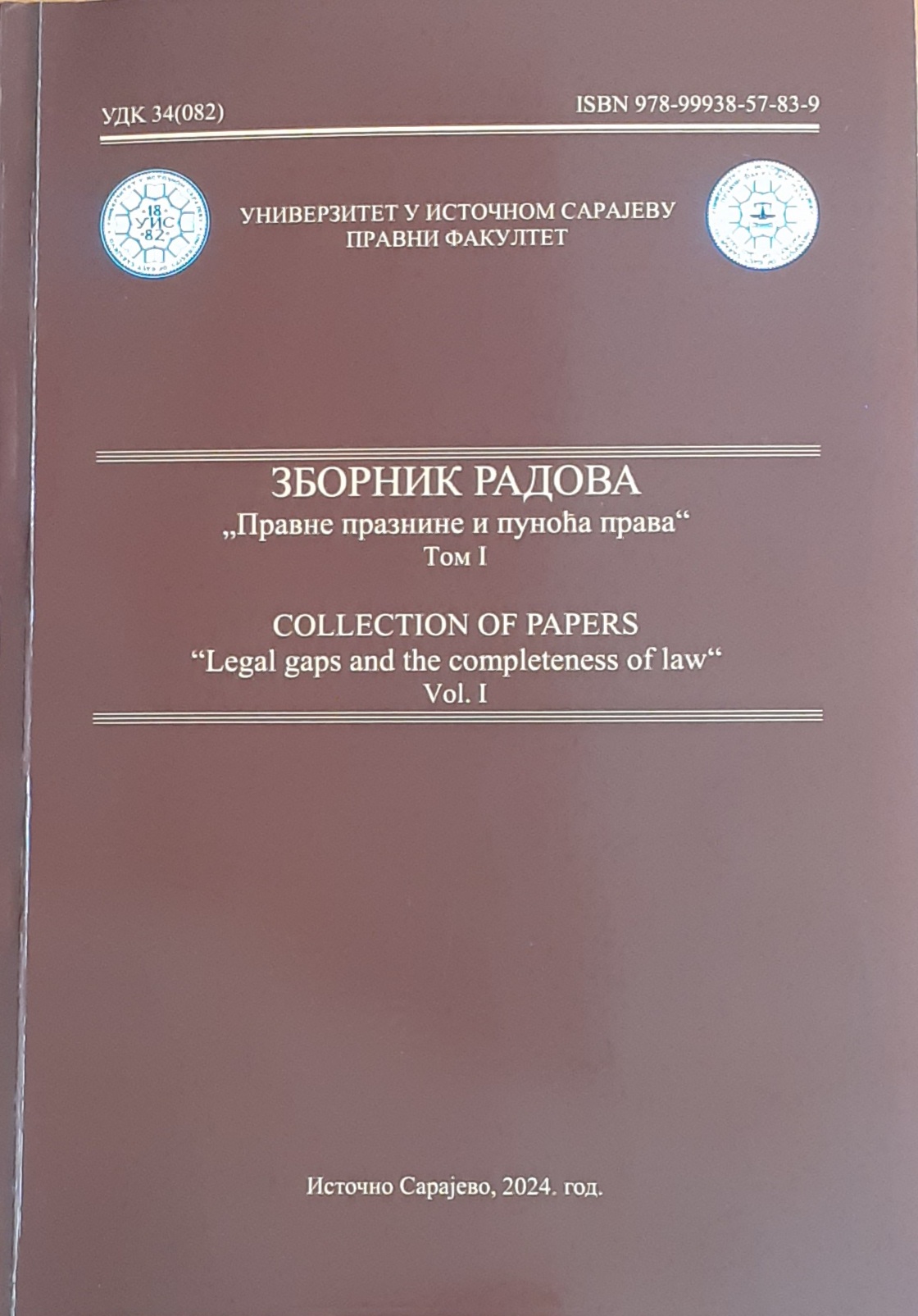Državno-crkveno-pravni odnosi u grčkom Ustavu
Legal Relationship Between the State and Church in the Greek Constitution
Author(s): Alexios Panagopoulos
Subject(s): Law, Constitution, Jurisprudence, Constitutional Law, Eastern Orthodoxy
Published by: Правни факултет Универзитета у Источном Сарајеву
Keywords: Orthodox Church; Greek Republic; Constitution;
Summary/Abstract: The Greek Constitution of 1975 is guided by the Orthodox faith. It begins with the words: "In the name of the Holy One-Essential and Indivisible Trinity". The position of the Orthodox Church in the Greek state, in which the rule of law system is maintained, is referred to in Article 3 paragraph 1. The position of the church in the state is determined by the fundamental principles and these are: The official religion is represented by the Orthodox Church; The Greek Orthodox Church stands in an unbreakable liturgical and prayer relationship with the Ecumenical Patriarchate in Constantinople and other local Orthodox Churches around the world; The Church has its own administration and the existing autocephaly must be preserved. Those provisions of Article 3 of the Constitution in their entirety are not new. We meet them in all the previous Constitutions of Greece and in various variants. The current Constitution of Greece, however, in connection with the recognition of the Orthodox Church as "valid", has largely departed from the provisions of the previous Constitution from 1952. For example, according to the previous monarchical Constitution, the heir to the royal throne, the guardian of the minor heir and the viceroy had to be of the Orthodox faith, while there is no similar provision for the president of the Greek Republic in the 1975 Constitution. Conversion, like any other influence on the ruling religion, was prohibited, while the current Constitution omitted that text. Conversion is prohibited if it is at the expense of any "recognized" religion, while the state intervenes in church matters. The introductory part was kept in the oath of the president of the republic and members of the assembly. It reads: "In the name of the Holy, One-Essential and Indivisible Trinity". Differentiating the departure of the provisions of the current Constitution from the provisions of the 1952 Constitution, led to the creation of the theory of valid religion, which denotes the religion of the majority of the Greek people. This issue of valid religion led to the impression that valid religion means the religion of the majority of the Greek people. It is valid because it is connected with traditions in the customs of most Greeks. The concept of valid religion is based on the following foundations: The official religion in the Greek state is represented by Orthodox dogmatic teaching; The Church is a legal entity of public law according to its legal relations, it has its own legal basis, as well as its various instruments; The state surrounds the church with expressed interest and enjoys a special position, and the state authorities implement literally the decisions of the church court. The Orthodox character of the religious service of the armed forces is nurtured as well as the establishment and care of Orthodox church schools by the state. Apart from the Orthodox Churches, members of other known religions enjoy many privileges. For example, law 1763/1988 exempts all religious officials from military service. Apart from Orthodox, monasteries and temples of other faiths are exempted from real estate tax and income taxation of legal entities.
Book: Зборник радова "Правне празнине и пуноћа права" Том I
- Page Range: 37-51
- Page Count: 15
- Publication Year: 2024
- Language: Serbian
- Content File-PDF

